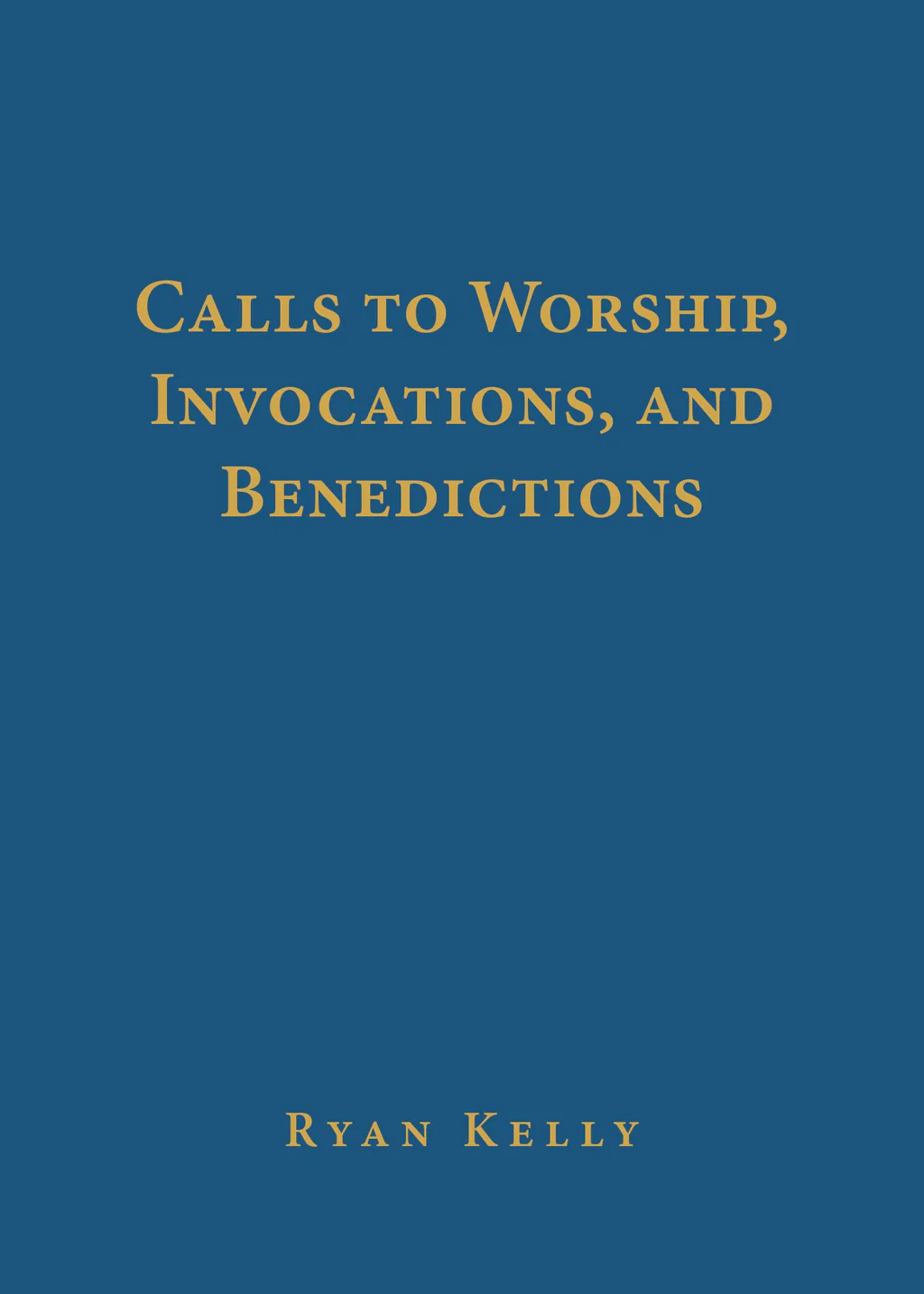
Ryan Kelly
Reviewed by: George R. Cottende
Calls to Worship, Invocations, and Benedictions, by Ryan Kelly, P&R, 2022. Hardcover, 288 pages, $15.00. Reviewed by OP minister George R. Cottenden.
The Reformed world has produced an increasing number of books aimed at encouraging a scriptural understanding of worship. Calls to Worship, Invocations, and Benedictions, by Ryan Kelly, is a narrowly focused but useful addition to that trend.
In a brief preface he states his two-fold purpose. First, he wants to encourage Scripture-filled worship. Second, he wants to give some historical perspective on the variety and flexibility of the practices of the Reformed churches relating to the three parts of worship that he considers.
This is a nice-sized handbook for the pastor’s desk, containing suggested calls to worship, invocations, and benedictions. To reach a broader audience than just churches holding to a strict view of the regulative principle of worship, Kelly organizes these chapters according to a liturgical calendar. However, an index of Scripture and an index of themes enable one to bypass the calendar aspect. There are also robust bibliographies of “practical resources” and of “study resources.”
In an introductory section, Kelly traces how these three parts of worship came to have a place in Reformed worship. He shows clearly that there has not been the rigid uniformity of practice that is sometimes assumed. This is a fascinating, if brief, treatment, although we may disagree with a few of his conclusions.
The call to worship, Kelly affirms, is not just a random Scripture verse. It is God’s own call to gather his people together. Ordinarily it should contain an exhortation to worship, such as “come let us worship and bow down” or “sing to the Lord.” It may, however, be a statement of an attribute or action of God showing that he is worthy of worship. In that case the minister can add words like, “Therefore, let us worship him.”
Kelly describes the invocation as “a prayer that calls upon God’s presence, assistance, and blessing in worship.” It is not an extended prayer of adoration, which would be better placed elsewhere in the service.
The benediction is “the minister’s pronouncement of God’s blessing on his people at the conclusion of worship.” This accords with the understanding of the benediction in our own Directory for Public Worship. Yet elsewhere he quotes at length several writers who see it as simply a prayer for God’s blessing.
Kelly argues that historical precedent and the analogy of the sermon allow the minister to use his own words for the call and benediction as long as they are restatements of scriptural teaching. One wonders, though, if Kelly and the ancient and contemporary authors whom he quotes give adequate attention to the different character and function of the sermon from these other parts of worship. In any case, a congregation with various levels of biblical understanding will better grasp that it is God declaring his blessing upon them if, as our Directory instructs, the very words of God are used.
Despite these issues, pastors should find this a valuable tool for enriching their use of Scripture in leading their people in worship.
April 21, 2024
5 Puritan Women: Portraits of Faith and Love
April 14, 2024
How to Read and Understand the Psalms
April 07, 2024
March 31, 2024
My Grandmother Is Praying for Me
March 24, 2024
March 17, 2024
Safeguards: Shielding Our Homes and Equipping Our Kids
March 10, 2024
© 2024 The Orthodox Presbyterian Church